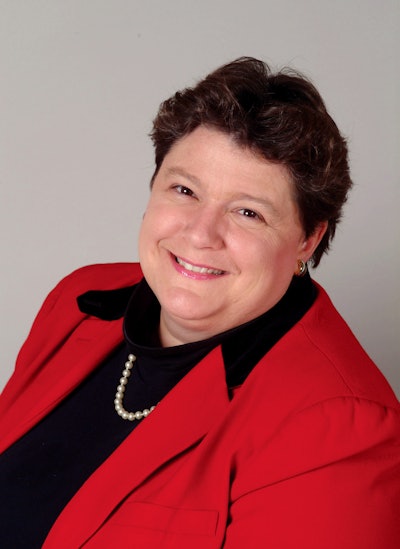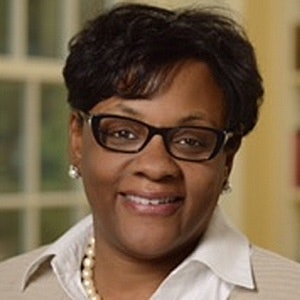In an effort to create a more qualified workforce, the city of Washington D.C. increased its minimum education requirements for early childhood professionals in 2016.
 Patricia McGuire
Patricia McGuireUnder the regulations, by 2022, workers within childcare facilities must obtain at least a Child Development Associate (CDA) certification. To progress within the field, an associate’s or bachelor’s degree is also required.
The decision was controversial, especially to those individuals who had been working in the field for decades without credentials. However, research has shown that a child’s critical stage for development occurs between birth and five years old.
“People who work with children should be skilled in working with children,” said Patricia McGuire, president of Trinity Washington University. “Not just because they have done it. But also there is contemporary knowledge about everything from the emotional well-being of children to how children learn and acquire language. So just doing it on instinct alone is good, but it doesn’t really provide the educational context that children need.”
To encourage more individuals to pursue a career in early childhood education and meet D.C.’s educational requirements, Trinity, American University’s (AU) School of Education and Martha’s Table, a D.C.-based nonprofit, have collaborated to launch Elevate Early Education.
“We are all very much aware that our teacher pipeline is not a healthy one,” said Dr. Cheryl Holcomb-McCoy, dean of AU’s School of Education. “We are in need of more teachers. And after COVID-19, we are seeing a lot of teacher loss. There is a huge need to create pathways for people to become educators. Affordable and accessible pathways. And that is what we are all about.”
 Dr. Cheryl Holcomb-McCoy
Dr. Cheryl Holcomb-McCoyThe Elevate Early Education initiative allows students to earn “stackable credentials” to create seamless pathways between the two universities. It is designed for high school seniors interested in early childhood education and individuals already in the workforce.
For example, students who earn an Associate of Arts (A.A.) degree at Trinity can transfer the credits towards a bachelor’s degree in early childhood education at the institution or elementary education at AU. Additionally, Trinity accepts AU’s newly-implemented CDA program as part of its A.A. degree.
Set up in an asynchronous format, students can participate in AU’s CDA program—which includes 120 hours of training, coursework and exam preparation—at their own pace. On average, total completion time ranges from four months and above. Martha’s Table serves as the training site for student’s clinical hours.
By the second year of the certification program, Holcomb-McCoy’s goal is to matriculate at least 200 students and see an increase in D.C. residents planning to pursue a degree in early childhood education. Trinity also offers its own in-person CDA certification, which is embedded in its A.A. degree in early childhood education.
With a goal of affordability, AU reduced its tuition for its bachelor’s degree in elementary education and CDA program to match Trinity’s rate. Additionally, scholarships are also available for students pursuing the CDA credential.
“I think scholarships and being able to pay, to a degree, is the most important thing to get students in so that they are not overburdened with loans and payments after they finish the programs,” said Holcomb-McCoy.
Beyond financial issues, other barriers such as balancing work and family responsibilities can prevent individuals from completing or starting their educational career. To address that, the initiative offers built-in support options including access to housing resources, food, clothing, childcare, transportation and technology.
 Tiffany Williams
Tiffany Williams“We are trying to be in a posture where when that person comes to say that they have a particular need, we can respond to that need so that they don’t have to step away from their intended outcome of actually attaining the credentials that they want to be an early childhood educator,” said Tiffany Williams, chief program officer at Martha’s Table.
With the implementation of the new regulations, the institutions face the challenge of encouraging childcare workers who have been in the field for years to enroll in educational pathways.
“There is what they call the ladder,” said McGuire. “The more credentials they earn, the more money they earn, so helping students to understand that this is something that will benefit them in the long run. There is just a lot of community education around that.”
She also emphasized that there is a need to address pay inequities within the field.
Williams hopes that this collaboration effort could serve as a model for other institutions around the country.
“It is an amazing pathway towards a lifelong career in education,” she added. “It is literally saying if you have the interest, passion and the desire, let us walk alongside you and help you get all the credentials that you need. From a CDA all the way through a bachelor’s and even potentially a master’s degree in education.”
Sarah Wood can be reached at [email protected].





















